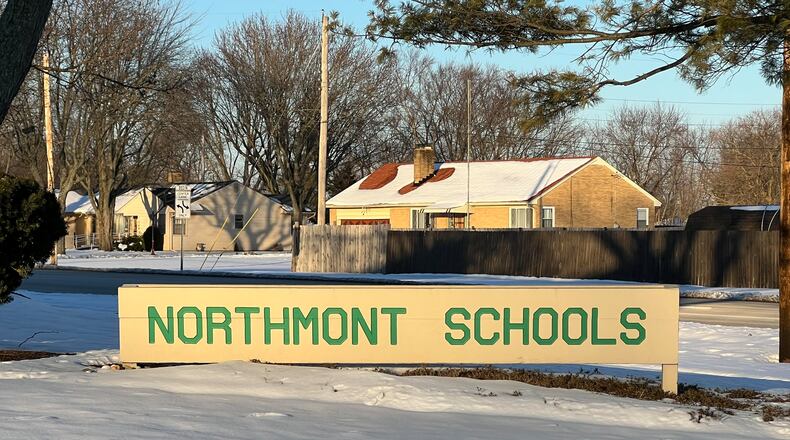School officials said the 3.46-mill levy would generate an estimated $3.5 million annually for 10 years if approved. It would cost homeowners $121 a year per $100,000 in property value.
The last time Northmont voters approved a new-money levy was in 2016 at 5.9 mills.
District spokeswoman Jenny Wood said a new levy is needed now to maintain operation of the district at the current levels of efficiency.
“Once a levy is passed by the citizens, the amount of money will never increase,” Wood said. “This triggers a levy cycle, requiring districts to return to the voters for levies to keep up with inflation.”
Wood said the district saw a 0.26% increase in funding from local and state funds this past fiscal year. She said that lagged behind inflation and that the district “cannot maintain services without going to the voters” for a tax levy.
The school district’s five-year forecast filed with the state in November shows a significant revenue increase in 2023-24, climbing from $61.3 million the previous year to $65.7 million in 23-24. That 7% increase helped the district finish $2.6 million in the black last year, after combined deficits of $4.6 million the previous two years.
Northmont began this school year with about 40% of a year’s spending in the bank, close to the average for Dayton-area school districts. But the financial forecast Northmont approved suggests revenue will drop this year and next year despite rising property tax revenues, while expenses will increase by 7% this year, then another 3.4% the next year.
The board is considering a contingency plan, which will include a list of potential cost reductions and budget cuts, in the event the new levy does not pass in May. The list of proposed cuts is tentatively scheduled to be presented for board approval in February.
During discussions about budget cuts, Superintendent Tony Thomas highlighted the district’s 99% graduation rate, higher than most districts in the region.
He said the district has already cut 41 positions and multiple programs, along with closing Englewood Elementary. The district board offices were also relocated in 2024 to space at the Kleptz YMCA that had been vacated by Sinclair Community College, a move that officials estimated will save around $135,000 annually, with plans to rent out their former board office.
These reductions came after voters rejected a 7.82-mill property tax levy in the May 2023 election, and a 5.5-mill emergency levy in November that year.
“The next round of cuts is going to hurt,” Thomas said.
Board President Linda Blum reflected on the potential long-term implications of additional cuts.
“The community as a whole is going to suffer, and it took us 10 years to come back from the major cuts we had to make in the early 1990s,” she said. “We certainly don’t want to go back to that.”
About the Author

